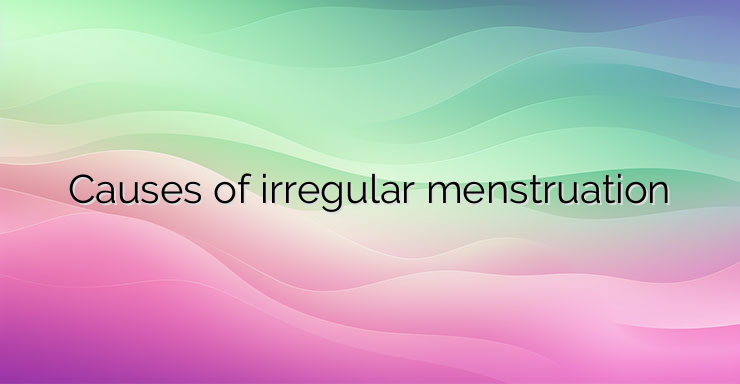The menstrual cycle is affected by various external and internal factors that can disrupt its duration and regularity. The main reasons for this may be: Eating disorders – bulimia, anorexia nervosa and excessive physical exertion. Women who impose strict dietary restrictions have been found to be affected by menstrual irregularities and have an increased risk of fertility disorders. Body weight, the way and mode of nutrition largely determine the hormonal balance of the ovaries. Psychological factors – depression, sleep disorders, stress can also disrupt the menstrual cycle. The condition worsens if stress is also associated with excessive consumption of coffee, tobacco or cannabis. Taking certain medications: this applies especially to some neuroleptics and antihistamines, which increase the level of prolactin and thus prevent menstruation from occurring. Some drugs containing progestins reduce menstrual flow and can sometimes cause amenorrhea – a lack of menstruation. What are the specific changes in the menstrual cycle? Irregular menstruation, between 6 weeks and 2 and a half months between two cycles and excessive hair growth and acne are associated with polycystic ovary syndrome – an increasingly common disease that is due to increased exposure to chemicals and substances that disrupt the functions of the endocrine glands in the body. Menstruation that occurs more often and is associated with more profuse bleeding, pain in the lower abdomen during or outside of menstruation – these can be signs of uterine diseases: polyps, fibroids or even uterine cancer. Absence of menstruation – amenorrhea and discharge of milk from the mammary glands can be signs of a prolactin adenoma – a benign tumor of the pituitary gland. Dysfunctions of the thyroid gland, hypothalamus or pituitary gland, impaired ovarian function or excessive production of male sex hormones can also lead to an irregular cycle. Irregular menstruation accompanied by hot flashes is a sign of menopause. Before menstruation finally stops, several months or even years may pass, during which the ovaries continue to secrete hormones, albeit irregularly. After that, the menstrual cycles are disturbed, their duration and the time between two cycles are disturbed. The presence of hot flashes, even in women who are still young, can point the diagnosis towards perimenopause or even early menopause. References: https://www.doctissimo.fr/html/sexualite/hygiene-feminine/articles/sa_5683_cycles_irreguliers.htm


Leave a Reply